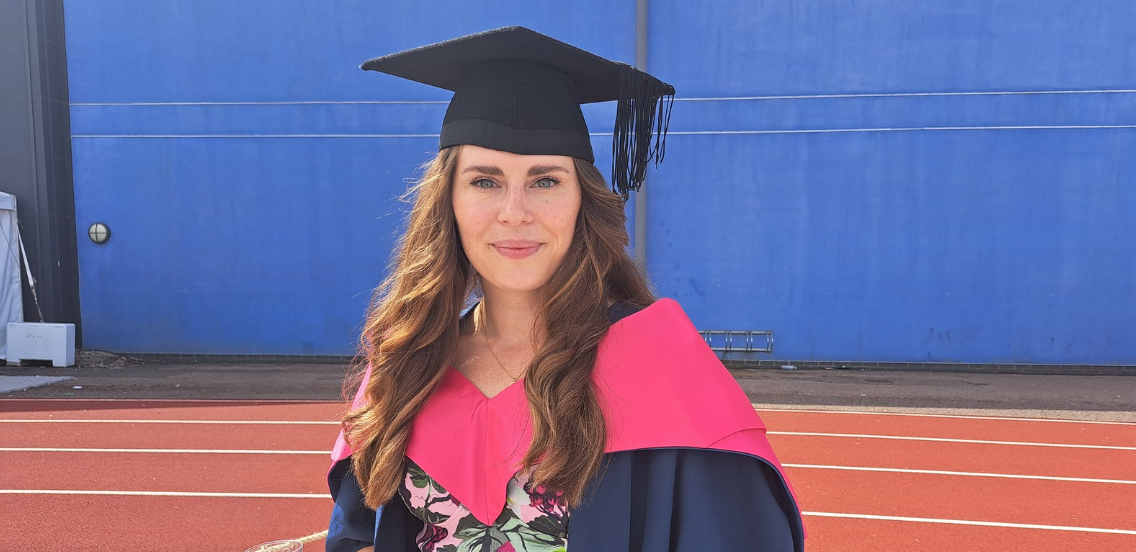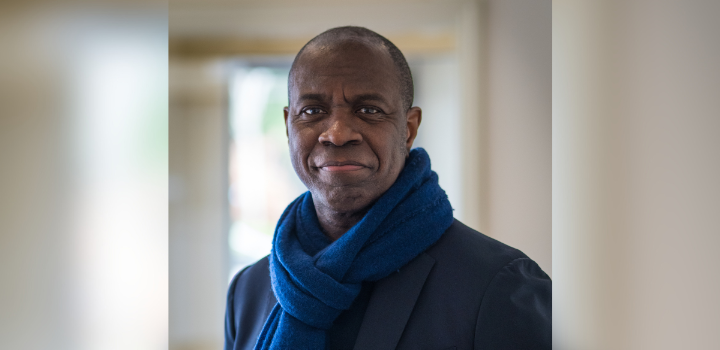UEA’s grant and funding success – February 2025
By: Communications

£1.1m for a revolutionary UK-India research initiative, led by UEA to drive 6G, AI-enabled networks, and satellite connectivity
Project lead: Prof Gerard Parr
With demand for ultra-fast, secure, and scalable networks at an all-time high, the UK-India Future Networks Initiative (UKI-FNI) will drive cutting-edge research into next-generation telecoms, exploring innovations in the supply chain for hardware and software systems that provide access, connectivity and services for future telecoms networks.
Led by Prof Parr, the initiative brings together leading researchers from the University of Surrey, University of Southampton, University College London, and King’s College London, alongside key partners from the Indian Institute of Science (IISc) Bangalore and the Indian Institute of Technology (IIT) Delhi.
Read more: UK and India join forces to shape the future of telecoms.
£354k from EPSRC awarded for 12-month research project focused on person-specific childbirth simulator and predictor
Project lead: Dr Rudy Lapeer
Project co-leads: Prof Beatriz de la Iglesia, Prof Gavin Cawley, Prof Stephen Laycock and Prof Wenjia Wang
Collaborators: University of Sheffield, Sheffield University Hospitals, Technical University Graz (Austria)
An EPSRC Health Technologies Connectivity Award for the value of £354,094.40 has been awarded to the ‘A digital twin of childbirth: Introducing healthcare technologies in obstetrics’ research project, led by Dr Lapeer.
The aim of the project is to create a person-specific childbirth simulator, capable of predicting a childbirth outcome before the actual event. This will be accomplished by using the already developed BirthView childbirth simulator in conjunction with fetal MRI obtained shortly before the expected delivery, to accurately reconstruct the feto-maternal anatomy.
This “digital twin” of childbirth would then be capable of predicting potential adverse outcomes. For example, if the simulator were to predict that a physiological (natural) childbirth would not be possible then a decision could be made to perform a planned or ‘elective’ Caesarean Section (CS) as a safer and less risky alternative to the emergency CS that would be required if a natural childbirth were to go ahead.
Various additional parameters that the simulator needs, e.g the material properties of the feto-maternal soft tissues, will be estimated using machine learning and explainable AI.
£205k for an AISI Systemic AI Safety grant
Project lead: Dr Farhana Liza
As part of EPSRC AI and Robotics theme, Dr Farhana Liza, Lecturer from the School of Computing Sciences (CMP) has received an AISI Systemic AI Safety grant of approximately £205k.
This will support research in making artificial intelligence systems safer and bolstering defence against cyber-attacks and deepfakes.
£4.25m from ARIA for a project to understand and predict ‘tipping points’ in marine ecosystems
Project lead: Prof Corinne Le Quéré
“Forecasting Tipping points In Marine Biogeochemistry and Ecosystem Responses” (TiMBER) is a collaboration between UEA, the Centre for Environment, Fisheries and Aquaculture Science (Cefas), the National Oceanography Centre (NOC), the Institute of Computing for Climate Science (ICCS) at the University of Cambridge, and the Scottish Association for Marine Science (SAMS).
The work has been awarded a grant by the UK Government’s Advanced Research + Invention Agency (ARIA). TiMBER’s lead research and development creator is Prof Corinne Le Quéré from UEA’s School of Environmental Sciences.
The project will aim to understand and predict ‘tipping points’ in marine ecosystems, and their consequences and opportunities for the UK, particularly for the fishing industry.
A £750,000 NIHR grant to improve child protection conferences for vulnerable children and their families
Lead researcher: Dr Laura L. Cook
Partners: King’s College London, Research in Practice, The Parents Families and Allies Network and the Kinship Care charity.
Dr Laura L. Cook (SWK) and the Centre for Research on Children and Families said: “Child protection conferences (CPCs) are an important stage of the child protection process in England. During Covid-19, CPCs moved from face-to-face to online. This had implications for parents’ ability to contribute as well as how professionals worked together.
Following the pandemic, there was a further major shift from in-person to ‘hybrid’ CPCs where there is a combination of in-person and online attendance. However, little is known about how local authorities are implementing hybrid CPCs or the equality, diversion and inclusion implications of this change – our research will address this important national issue”.
NIHR i4i FAST award
Lead researcher: Dr Stephanie Rossit
A NIHR i4i FAST award will investigate the clinical feasibility of Dr Stephanie Rossit’s EyeFocus app for cognitive rehabilitation in acquired brain injury.
EyeFocus is a mobile tablet-app developed by Dr Stephanie Rossit’s team (PSY) and industry partner Animorph co-op with input from stroke survivors, carers, clinicians and charities to improve acquired brain injury clinical management and help survivors recover from attentional problems.
In this project, the team will test how feasible EyeFocus is when applied in hospital settings and the data will be used to further improve the app and inform a future large-scale efficacy trial testing if the app improves attention and daily life functioning.
Related Articles

Global project to address major gap in disability research for South Asian families
University of East Anglia (UEA) researchers have launched a major international study to better-understand the experiences of South Asian families caring for relatives with intellectual and developmental disabilities.
Read more
A graduate’s apprenticeship journey from ‘imposter’ to award‑winning strategic leader
For National Apprenticeship Week 2026, UEA is shining a spotlight on graduate Anna Tanner, whose experience on UEA’s apprenticeship and MBA programmes helped to transform her confidence and leadership style.
Read more
Multi-award-winning journalist Clive Myrie visits UEA for in-conversation event
Learn more about the chance to meet and hear from one of the BBC’s most experienced and recognised news presenters at a special event in May.
Read more